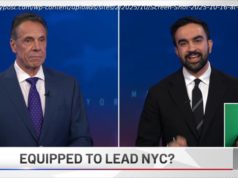The Republican justices hunt for a reason to gut America’s most successful civil rights law.
Two things were obvious at Wednesday morning’s Supreme Court argument in Louisiana v. Callais, a case asking the Court to abolish longstanding safeguards against racially gerrymandered legislative maps.
The first thing is that the Court will split along party lines, with all six Republicans voting to destroy the federal Voting Rights Act’s (VRA) restrictions on racial gerrymandering, and all three Democrats in dissent. The other thing is that there is no consensus among the Republicans about how they should write an opinion gutting these protections.SCOTUS, Explained
Get the latest developments on the US Supreme Court from senior correspondent Ian Millhiser.
While all six Republican justices almost certainly walked into Wednesday’s argument with a particular result in mind, they had wildly divergent theories of how to get there.
Justice Samuel Alito seemed to argue that maps that exclude Black voters are acceptable so long as they were enacted for the purpose of benefiting the Republican Party, rather than for explicitly white supremacist reasons.
Justice Brett Kavanaugh argued that the Voting Rights Act must sunset after an undetermined amount of time.
Justice Amy Coney Barrett proposed imposing a limit on Congress’s power to remedy discrimination — one that the Court has applied in nonvoting cases — on election-related laws like the VRA.
But even if the Court’s Republican majority cannot agree on a reason why they want to kill decades-old protections against racial gerrymanders, it’s been obvious for a long time that they are eager to kill them. As a young lawyer, Chief Justice John Roberts was a central figure in a failed effort to convince President Ronald Reagan to veto an amendment to the Voting Rights Act that strengthened its protections and spawned its modern rules against gerrymandering.
Although Roberts shocked many Court-watchers when, in a 2023 case that is virtually identical to Callais, he wrote an opinion leaving the VRA’s anti-gerrymandering provisions in place. Roberts claimed on Wednesday that the 2023 case “took the existing precedent as a given.” In Callais, by contrast, the Court specifically asked the parties to brief whether requiring states to draw maps that give more representation to racial minorities, as the VRA sometimes requires, violates the Constitution.
The Court, in other words, essentially asked the lawyers challenging Louisiana’s current maps to directly challenge the precedents which, Roberts now claims, he previously “took as a given.






